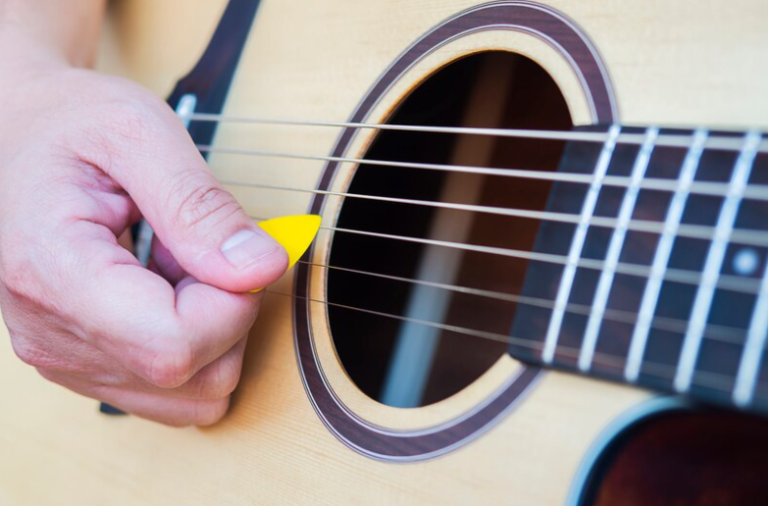Learn How to Sing: Your Inner Songbird Will Sing With Confidence
When you want to “learn how to sing,” you’re embarking on an incredible journey. This article will guide you through the process of learning how to sing with confidence.
The Benefits Of When You Learn How To Sing
Singing isn’t just about hitting the right notes; it offers a treasure trove of benefits for your well-being. Discover why “learning how to sing” is not only fun but also proven therapeutic by the scientific community:
Improved Mental Health:
- Singing has been linked to increased levels of dopamine, a neurotransmitter associated with pleasure and reward. This can lead to improved mood and overall mental well-being when you learn how to sing correctly.
Stress Reduction:
- Scientific studies have shown that singing can reduce the levels of the stress hormone cortisol in the body. Singing triggers the release of endorphins, which are natural mood lifters, contributing to reduced stress and anxiety.
Boosted Immune System:
- Singing may strengthen the immune system. Research has shown that singing can increase the levels of immunoglobulin A (IgA) in the body, which plays a crucial role in immune function.
Plain Emotional Expression:
- Singing allows individuals to express their emotions through music. This emotional release has been associated with reduced feelings of stress and improved emotional well-being.
Getting Started – The Basics of Singing
Before you “learn how to sing,” it’s crucial to understand the fundamentals. Explore the basics, including warm-up exercises and proper breathing techniques. There are 50 billion exercises that you can find (or makeup because… some of these seem made up. Alas, they work!)
- Lip Trills:
- Start by blowing air through your closed lips, causing them to flutter. This exercise helps to relax your lips, tongue, and jaw while engaging your diaphragm. Gradually move up and down your vocal range as you continue the lip trills.
- Humming:
- Humming is a gentle way to warm up your vocal cords. Begin by humming at a comfortable pitch, and then gradually move through different pitches, ascending and descending. This exercise helps you establish resonance and control.
- Sirens:
- Create a siren-like sound by sliding smoothly from your lowest comfortable note to your highest and back down again. This exercise promotes flexibility in your vocal cords and helps you connect your vocal registers.
- Scales:
- Singing scales is a fundamental warm-up exercise. Start with simple major or minor scales and sing through the entire range of your voice. This exercise aids in pitch accuracy and vocal agility.
- Yawning:
- Yawn naturally and then exaggerate the yawn by stretching your jaw as wide as possible. While yawning, produce an “ah” sound. This exercise helps to relax your throat muscles and open up your vocal tract.
Finding Your Voice – Vocal Range and Type
As a singer, it’s important to find your voice. I will never forget the time when my guitar teacher listened to an artist I liked at the time and looked at me saying, “THAT SOUNDS LIKE YOU- or… do you sound like him?”
Also, uncovering the importance of understanding your vocal range and type as you embark on your journey to “learn how to sing.” You don’t want to be too high, or too low.
- Start with Basic Vocal Exercises:
- Begin by singing a series of ascending and descending scales, starting from your lowest comfortable note and gradually moving to higher pitches. Use a piano, keyboard, or a pitch pipe to assist you in staying on key. As you sing these scales, pay close attention to the point at which your voice naturally transitions from chest voice (lower notes) to head voice (higher notes). This transitional point is known as your vocal break or passaggio. It’s an essential indicator of your vocal range.
- Consult a Vocal Coach or Teacher:
- Seeking guidance from a qualified vocal coach or teacher is one of the most effective ways to determine your vocal range accurately. They have the expertise to assess your voice and guide you through vocal exercises that help identify your vocal range and voice type. A vocal coach can also provide valuable insights into your strengths and areas for improvement.
- Use Online Tools and Apps:
- There are various online tools and smartphone apps designed to help you determine your vocal range. These tools typically play a series of notes, and you sing along to identify the highest and lowest notes you can comfortably reach. While these tools may not be as precise as a professional assessment, they can provide a good estimate of your vocal range. Just keep in mind that using them alongside guidance from a vocal coach is recommended for a more accurate assessment.
Also, like I said, take an honest approach to your singing. You may love (whatever) singer, but do you really need to sing like that person? Or, better yet, do you sound like that singer? Get honest opinions from trusted sources (not your mom).
Vocal Training – Where to Begin
Learn where to begin your vocal training journey, whether you’re seeking a vocal coach or prefer self-paced online courses.
- Local Vocal Coaches or Instructors:
- Consider taking lessons with a qualified vocal coach or instructor in your area. They can provide personalized guidance, assess your strengths and weaknesses, and tailor exercises to your specific needs. You can often find local vocal coaches through music schools, community centers, or by asking for recommendations from fellow musicians.
- Online Vocal Courses and Platforms:
- There are many online platforms that offer comprehensive vocal training courses. Websites like SingingSuccess, Udemy, and Coursera host courses taught by experienced vocal instructors. These courses often include video lessons, exercises, and practice materials that you can access from anywhere.
- YouTube Tutorials and Channels:
- YouTube is a treasure trove of free vocal training resources. Many skilled vocal coaches and singers share tutorials and lessons on their channels. Some popular vocal coaches on YouTube include Ken Tamplin Vocal Academy, Felicia Ricci, and Dr. Dan’s Voice Essentials.
- Vocal Warm-Up Apps:
- There are mobile apps designed to help you with vocal warm-up exercises and practice. Apps like “Vox Tools” and “Warm Me Up” provide guided warm-up routines and exercises that you can do on your own.
- Online Singing Communities and Forums:
- Joining online singing communities and forums can be a great way to connect with other aspiring singers, share experiences, and seek advice. Websites like Reddit’s r/singing and the Singing Success Forum offer a supportive community of singers and vocal enthusiasts.
- Sheet Music and Songbooks:
- Access sheet music and songbooks to practice singing with proper notation. You can find sheet music for your favorite songs at music stores, online sheet music retailers, or even in your local library.
- Vocal Exercise Books:
- Many vocal exercise books provide a structured approach to vocal training. “The Singer’s Workbook” by Lisa Popeil and “The Contemporary Singer” by Anne Peckham are highly regarded options.
- Karaoke and Sing-Along Apps:
- Karaoke apps like Smule and Sing! Karaoke by StarMaker offers a fun way to practice singing along with backing tracks and lyrics. These apps often have a vast library of songs to choose from.
- Recording and Playback Tools:
- Invest in recording equipment or use digital audio workstations (DAWs) like Audacity to record your practice sessions. Listening to your recordings allows you to assess your progress and identify areas for improvement.
- Local Choirs and Singing Groups:
- Joining a local choir or singing group can provide valuable group vocal training experience and an opportunity to perform with others who share your passion for singing.
Learning how to sing is a rewarding journey that brings joy and fulfillment. Start your singing journey today and discover how you can unlock your inner songbird with confidence.
As you embark on your journey to “learn how to sing,” remember that every great singer started as a beginner. With dedication and practice, you can develop your skills and share your unique voice with the world. Sing with confidence, and let your inner songbird soar.
Daniel Powers Jr, the founder of Real Brave™, serves as the chief inspiration to thousands of students in the Real Brave music instruction program. He’s also the visionary behind PracticePad™, an online platform for live one-on-one online music lessons, lesson tracking, and scheduling. Beyond his entrepreneurial pursuits, Daniel leads a non-profit organization that provides formerly homeless children with access to music education, making a profound impact on their lives. His unwavering dedication to music, innovation, and education continues to inspire individuals to reach their fullest potential while creating positive change in communities.






